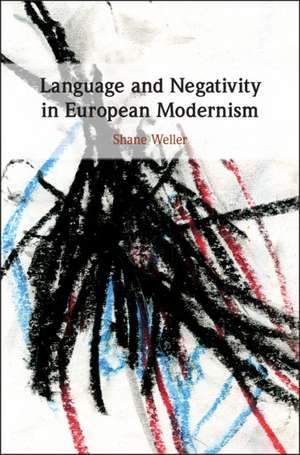Language and Negativity in European Modernism
Autor Shane Welleren Limba Engleză Hardback – 21 noi 2018
Preț: 518.15 lei
Preț vechi: 644.22 lei
-20% Nou
Puncte Express: 777
Preț estimativ în valută:
99.15€ • 104.26$ • 81.93£
99.15€ • 104.26$ • 81.93£
Carte indisponibilă temporar
Doresc să fiu notificat când acest titlu va fi disponibil:
Se trimite...
Preluare comenzi: 021 569.72.76
Specificații
ISBN-13: 9781108475020
ISBN-10: 1108475027
Pagini: 280
Dimensiuni: 159 x 235 x 20 mm
Greutate: 0.57 kg
Editura: Cambridge University Press
Colecția Cambridge University Press
Locul publicării:Cambridge, United Kingdom
ISBN-10: 1108475027
Pagini: 280
Dimensiuni: 159 x 235 x 20 mm
Greutate: 0.57 kg
Editura: Cambridge University Press
Colecția Cambridge University Press
Locul publicării:Cambridge, United Kingdom
Cuprins
Introduction; 1. The language crisis: from Mallarmé to Mauthner; 2. Great destructive work: The interwar years; 3. Performing the negative: Franz Kafka; 4. Humanity in ruins: Samuel Beckett; 5. Writing the disaster: Maurice Blanchot; 6. Through the thousand darknesses: Paul Celan; 7. Unconditional negativity: W. G. Sebald; 8. Unwording, terminal and interminable; Conclusion; Bibliography; Index.
Recenzii
'… this book deals with a crucial aspect of modernist literature, and the overall view it offers of this historical progression is accompanied by close and solid analysis of texts.' Forum for Modern Language Studies
Notă biografică
Descriere
Proposes that a distinct strain of literary modernism emerged in Europe in response to historical catastrophe.
